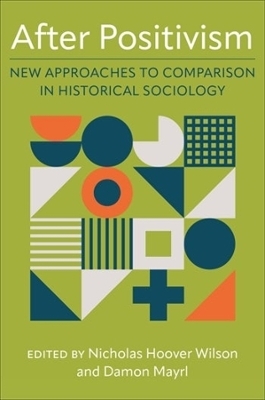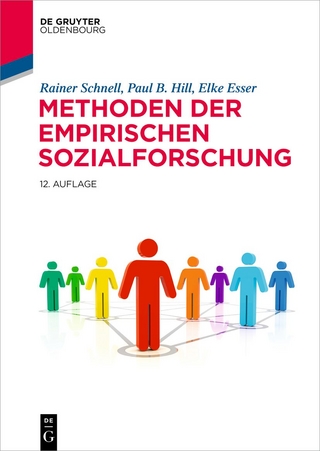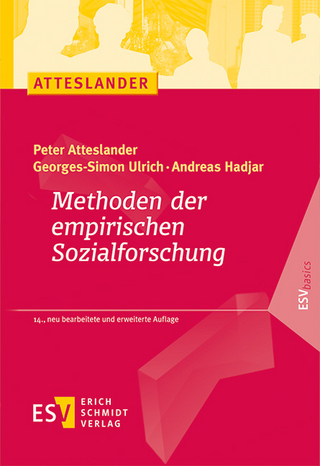
After Positivism
Columbia University Press (Verlag)
978-0-231-20823-9 (ISBN)
What is the value of comparison for research in historical sociology? Today, social scientists regularly express doubt about the positivist premises that have long justified comparison’s use: that cases can be unproblematically compared as though they are independent of one another, that comparison can reliably yield valid causal inference, and that comparative methods can grapple with questions of meaning, sequence, and process that are central to historical explanation. Yet they remain reluctant to abandon comparison altogether, not least because comparisons are still manifestly useful in the research process.
After Positivism presents a bold new set of warrants and methodologies for comparison that takes these criticisms fully into account. The contributors to this book marshal a wide array of postpositivist approaches to knowledge to reconstruct the analytic potential of comparison for a new generation of social scientists. In addition to providing fresh answers to classic questions about case selection and causal inference, authors ponder the role comparison plays in a world where social phenomena are demonstrably time-, space-, and concept-dependent; where causation is typically conjunctural; where social structures and groups emerge and die; and where important objects of inquiry can be understood only in terms of relationships, emergent properties, or contingent and irregular effects. Engaging and timely, this book will be of interest to all those who seek to improve our explanations of historical change in social-scientific research.
Nicholas Hoover Wilson is associate professor of sociology at Stony Brook University. He is the author of Modernity’s Corruption: Empire and Morality in the Making of British India (Columbia, 2023). Damon Mayrl is associate professor of sociology at Colby College. He is the author of Secular Conversions: Political Institutions and Religious Education in the United States and Australia, 1800–2000 (2016).
Acknowledgments
Comparison After Positivism, by Damon Mayrl and Nicholas Hoover Wilson
Part I. Why Compare?
1. The Qualitative-Quantitative Divide in Comparative Historical Analysis, by Stefan Bargheer
2. Comparison in Action: Immersion and Recursion as Heuristics in Historical Sociology, by Damon Mayrl
3. The Meaningfulness of Comparison: A Macro-Phenomenological Exploration, by Xiaohong Xu
4. From Causality to Constitution: Why Good Historical Comparisons Are the Same as Good Ethnographic Case Studies, Deep Down, by Josh Pacewicz
Part II. What to Compare
5. Process Theories and Comparative Sociology: Some Problems and a Solution, by Natalie B. Aviles
6. Designing Narratives and Recovering Legal Narrativity: An Exploratory Essay, by Laura R. Ford
7. Comparison, Context, and the Power of Modern Corruption, by Nicholas Hoover Wilson
Part III. How to Compare
8. Comparative Sociology, Critical Realism, and Reflexivity, by George Steinmetz
9. Historicizing Comparisons in Historical Sociology, by Jonah Stuart Brundage
10. How Not to Lie with Comparative Historical Sociology: A Realist Balance Sheet, by Simeon J. Newman
11. Historical Causation and Temporally Sensitive Comparisons, by Yang Zhang
12. The Dialectical Comparative Methodology, by Rebecca Jean Emigh, Dylan Riley, and Patricia Ahmed
Afterword, by Philip Gorski
Contributors
Index
| Erscheinungsdatum | 22.03.2024 |
|---|---|
| Verlagsort | New York |
| Sprache | englisch |
| Maße | 156 x 235 mm |
| Themenwelt | Sozialwissenschaften ► Soziologie ► Empirische Sozialforschung |
| ISBN-10 | 0-231-20823-5 / 0231208235 |
| ISBN-13 | 978-0-231-20823-9 / 9780231208239 |
| Zustand | Neuware |
| Haben Sie eine Frage zum Produkt? |
aus dem Bereich


